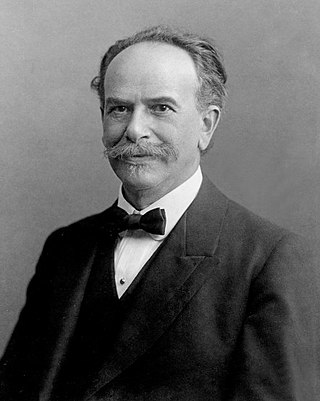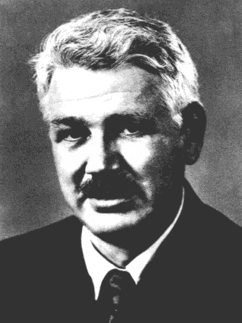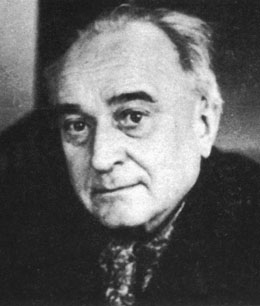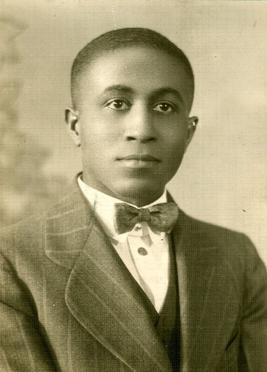
Anthropology is the scientific study of humanity, concerned with human behavior, human biology, cultures, societies, and linguistics, in both the present and past, including past human species. Social anthropology studies patterns of behavior, while cultural anthropology studies cultural meaning, including norms and values. A portmanteau term sociocultural anthropology is commonly used today. Linguistic anthropology studies how language influences social life. Biological or physical anthropology studies the biological development of humans.

Franz Uri Boas was a German-American anthropologist and a pioneer of modern anthropology who has been called the "Father of American Anthropology". His work is associated with the movements known as historical particularism and cultural relativism.
Race is a categorization of humans based on shared physical or social qualities into groups generally viewed as distinct within a given society. The term came into common usage during the 16th century, when it was used to refer to groups of various kinds, including those characterized by close kinship relations. By the 17th century, the term began to refer to physical (phenotypical) traits, and then later to national affiliations. Modern science regards race as a social construct, an identity which is assigned based on rules made by society. While partly based on physical similarities within groups, race does not have an inherent physical or biological meaning. The concept of race is foundational to racism, the belief that humans can be divided based on the superiority of one race over another.

Carleton Stevens Coon was an American anthropologist. A professor of anthropology at the University of Pennsylvania, lecturer and professor at Harvard University, he was president of the American Association of Physical Anthropologists. Coon's theories on race were widely disputed in his lifetime and are considered pseudoscientific in modern anthropology.

Chie Nakane was a Japanese anthropologist and Professor Emerita of Social Anthropology at the University of Tokyo.

Sir Edward Evan Evans-Pritchard FBA FRAI was an English anthropologist who was instrumental in the development of social anthropology. He was Professor of Social Anthropology at the University of Oxford from 1946 to 1970.
An anthropologist is a person engaged in the practice of anthropology. Anthropology is the study of aspects of humans within past and present societies. Social anthropology, cultural anthropology and philosophical anthropology study the norms and values of societies. Linguistic anthropology studies how language affects social life, while economic anthropology studies human economic behavior. Biological (physical), forensic and medical anthropology study the biological development of humans, the application of biological anthropology in a legal setting and the study of diseases and their impacts on humans over time, respectively.
George Peter ("Pete") Murdock, also known as G. P. Murdock, was an American anthropologist who was professor at Yale University and University of Pittsburgh. He is remembered for his empirical approach to ethnological studies and his study of family and kinship structures across differing cultures. His 1967 Ethnographic Atlas dataset on more than 1,200 pre-industrial societies is influential and frequently used in social science research.
The Caucasian race is an obsolete racial classification of humans based on a now-disproven theory of biological race. The Caucasian race was historically regarded as a biological taxon which, depending on which of the historical race classifications was being used, usually included ancient and modern populations from all or parts of Europe, Western Asia, Central Asia, South Asia, North Africa, and the Horn of Africa.
History of anthropology in this article refers primarily to the 18th- and 19th-century precursors of modern anthropology. The term anthropology itself, innovated as a New Latin scientific word during the Renaissance, has always meant "the study of man". The topics to be included and the terminology have varied historically. At present they are more elaborate than they were during the development of anthropology. For a presentation of modern social and cultural anthropology as they have developed in Britain, France, and North America since approximately 1900, see the relevant sections under Anthropology.
Primitive Culture is an 1871 book by Edward Burnett Tylor. In his book, Tylor debates the relationship between "primitive" societies, and "civilized" societies, a key theme in 19th century anthropological literature.

Charles Gabriel Seligman FRS FRAI was a British physician and ethnologist. His main ethnographic work described the culture of the Vedda people of Sri Lanka and the Shilluk people of the Sudan. He was a professor at London School of Economics and was influential as the teacher of well-known anthropologists such as Bronisław Malinowski, E. E. Evans-Pritchard, and Meyer Fortes.
Feminist anthropology is a four-field approach to anthropology that seeks to transform research findings, anthropological hiring practices, and the scholarly production of knowledge, using insights from feminist theory. Simultaneously, feminist anthropology challenges essentialist feminist theories developed in Europe and America. While feminists practiced cultural anthropology since its inception, it was not until the 1970s that feminist anthropology was formally recognized as a subdiscipline of anthropology. Since then, it has developed its own subsection of the American Anthropological Association – the Association for Feminist Anthropology – and its own publication, Feminist Anthropology. Their former journal Voices is now defunct.

Sir John Rankine Goody (1919–2015) was an English social anthropologist. He was a prominent lecturer at Cambridge University, and was William Wyse Professor of Social Anthropology from 1973 to 1984.
Adriaan Hendrik Johan Prins, generally known as A. H. J. Prins was a Dutch Africanist and maritime anthropologist.

Isaac Schapera FBA FRAI, was a social anthropologist at the London School of Economics specialising in South Africa. He was notable for his contributions of ethnographic and typological studies of the indigenous peoples of Botswana and South Africa. Additionally, he was one of the founders of the group that would develop British social anthropology.
Urban anthropology is a subset of anthropology concerned with issues of urbanization, poverty, urban space, social relations, and neoliberalism. The field has become consolidated in the 1960s and 1970s.
Social anthropology is the study of patterns of behaviour in human societies and cultures. It is the dominant constituent of anthropology throughout the United Kingdom and much of Europe, where it is distinguished from cultural anthropology. In the United States, social anthropology is commonly subsumed within cultural anthropology or sociocultural anthropology.

Fuambai Sia Ahmadu is a Sierra Leonean-American anthropologist. She has worked for UNICEF and the British Medical Research Council in the Gambia.

Mark Hanna Watkins was an Afro-American linguist and anthropologist. He was born in Huntsville, Texas, the youngest of fourteen children of a Baptist minister. He obtained a Bachelor of Science from Prairie View State College in 1926, remaining there for a further two years as assistant registrar. In 1929, he enrolled at the University of Chicago, where he became a pupil of Edward Sapir and wrote a Master's thesis entitled Terms of Relationship in Aboriginal Mexico (1930), dealing with seven genetically unrelated language groups: Otomian, Tarascan, Aztecan, Mixtecan, Zapotecan, Mixean, and Mayan.









